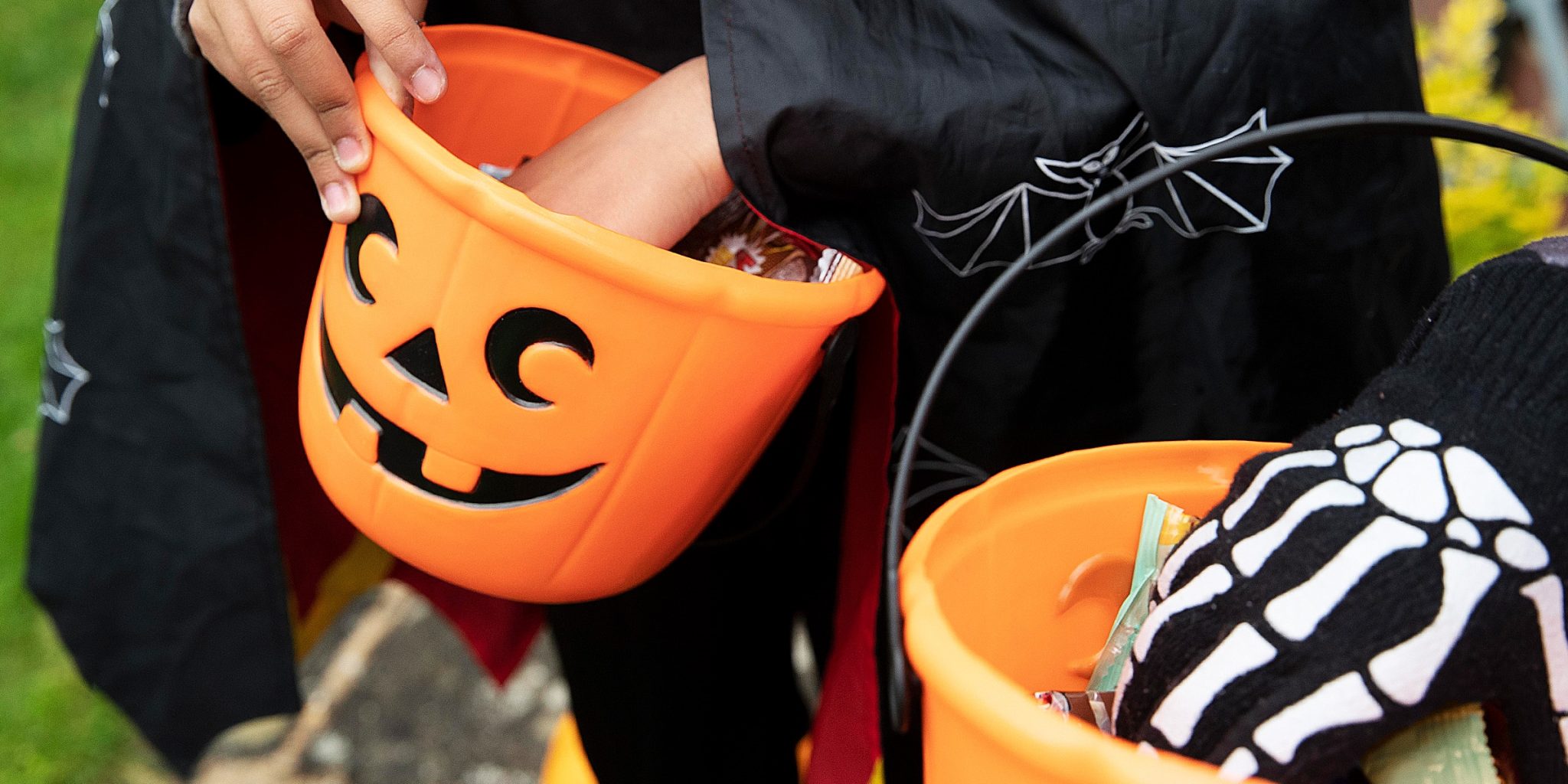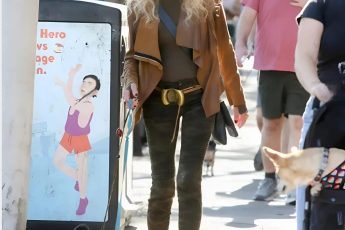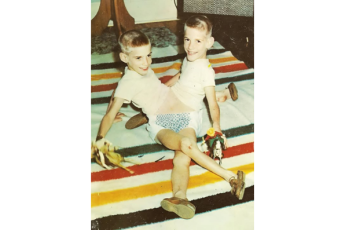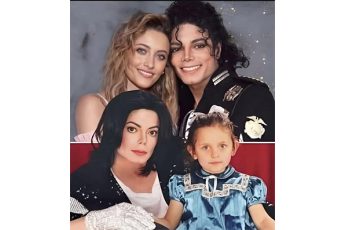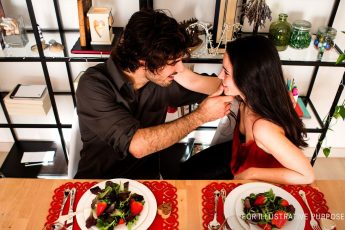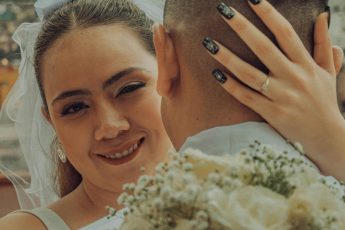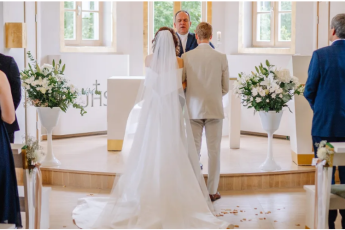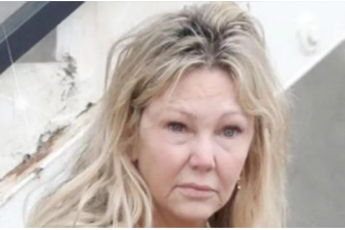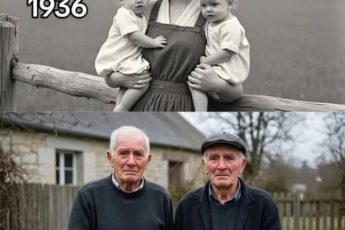When Natalie’s mother-in-law organized a Halloween get-together for all of her grandchildren, it initially seemed like a sweet, harmless idea. But when her six-year-old daughter was cruelly singled out and told she couldn’t go trick-or-treating, Natalie uncovered the real reason — and gave her mother-in-law a very public lesson she’s unlikely to forget.

My mother-in-law, Evelyn, lives for theatrics. If they handed out trophies for turning small family hangouts into over-the-top social events, she’d have an entire shelf filled by now.
So when a message titled “Halloween at Grandma’s Mansion” popped up in our family group chat, I wasn’t even surprised that it looked like a glossy magazine invitation rather than a casual text to her kids.

The digital card shimmered with gold pumpkins and fancy script that read, in big letters, *Hosted by Evelyn.* Underneath, she’d written:
*“My house is ideal for this. I’ve planned decorations, hidden adventure rooms, and a special trick-or-treat path through our neighborhood. The kids are going to adore it!”*
And then came the part that made my stomach tighten in that all-too-familiar way.
*“Every child must come in costume — it’s all about the Halloween spirit!”*
She never added conditions like that just for fun. With Evelyn, even simple rules felt like subtle tests you were expected to pass. Failing them always carried consequences, even if they weren’t spoken out loud.
When I showed the invite to my six-year-old daughter, Amelia, her eyes lit up as bright as a carved jack-o’-lantern.
“I want to be Wednesday Addams!” she blurted out, completely sure of herself.
She folded her arms and tried to pull off her most expressionless stare. It was more precious than scary, but she was very proud of it.
I laughed and brushed a loose braid away from her face. “That’s a perfect idea, kiddo. Your grandma won’t know what hit her.”
Amelia twirled in front of the mirror, her dark brown hair already giving her a head start on the look.
“I’m going to be serious the whole night,” she declared in a very solemn tone. “No smiling.”
“Good luck,” I teased. “You can’t usually go more than two minutes without cracking up.”
The days before Halloween were packed with preparations. We tracked down the ideal black dress with a crisp white collar and found a little trick-or-treat bag shaped like a coffin. She practiced her “Wednesday walk” down the hallway, slow and bored, like the entire world was beneath her.
By the time Halloween finally rolled around, she was completely in character and absolutely thrilled.
***
When we pulled into Evelyn’s driveway, the entire place glowed. Orange lights lined the path, carved pumpkins framed the front steps, and soft classical music floated out from inside. Evelyn’s house didn’t feel like a home so much as a showroom — huge, immaculate, and emotionally cold.
I walked Amelia up to the front door. Before I could even knock, the maid opened it with a polite smile.
“Mrs. Evelyn is in the parlor, ma’am,” she said. “The children are upstairs getting into their costumes.”
Amelia beamed and clutched her coffin-shaped candy bag. “I’ll see you tomorrow, Mommy!” she chirped as she skipped past the threshold.
I kissed her forehead. “Have the best time, sweetheart. I’ll pick you up in the morning.”
Everything looked fine, at least for the first little while.
About an hour later, I was in the kitchen wiping down the counter after dinner when my phone lit up with Amelia’s name. I answered it, expecting excited updates about games and candy.
Instead, I heard quiet, shaky sobs.
“Mom,” she whispered, her voice breaking, “Grandma said I can’t go trick-or-treating with the others. She said I have to stay here with the maid.”
My blood ran cold. “What? Why would she say that? What happened?”
“She told me my costume wasn’t good enough,” Amelia sniffled. “She said I didn’t try hard.”
I tightened my grip on the phone, my heart hammering in my chest. “Baby, I’m coming to get you right now.”
At that moment, every attempt I’d made over the years to keep things calm with Evelyn evaporated. I didn’t care about her money, her reputation, or her carefully groomed image. No one — absolutely no one — gets to make my child feel small and unworthy.
Before Amelia could say anything else, I heard shuffling, and then another voice came on the line.
“Hello?” Evelyn said.
“Why isn’t my daughter going trick-or-treating with everyone else?” I demanded, forcing my voice to stay controlled.
She paused, then suddenly changed her tone. “Oh, the reception is terrible,” she said lightly. “You’re cutting out.”
“Evelyn—”
Click.
The call ended.
I tried dialing again, but it went straight to voicemail. A second attempt sent me there too.
My husband, Michael, had been watching me pace back and forth. “What’s going on?” he asked.
I turned my phone so he could see the screen. “Your mother told our six-year-old she’s not allowed to go trick-or-treating. And then she hung up on me.”
His face hardened. “She did *what*?”
I didn’t have to say anything else. He grabbed his keys and headed for the door.
“Let’s go,” he said.
The drive to his mother’s mansion felt endless. Neither of us spoke. The only sounds were the hum of the engine and my fingernails tapping anxiously against the door handle.
The closer we got to her neighborhood, the more extravagant the Halloween decorations became. When we finally reached Evelyn’s street, hers naturally outshone all the others. Enormous animatronic bats flapped over the driveway, and a life-sized witch figure stirred a bubbling prop cauldron by the front entrance.
Everything about the place screamed wealth and perfection.
Except that in Evelyn’s idea of perfection, my daughter didn’t seem to fit.
I didn’t bother knocking. I pushed the front door open and stepped inside. The maid jumped, clearly startled.
“Mrs. Evelyn is in the backyard with the guests,” she murmured, eyes darting nervously toward the back of the house.
I barely acknowledged her. I scanned the room instead — and then I saw her.
Amelia sat alone on a plush velvet couch, still dressed as Wednesday Addams. Her braids were coming undone, and black streaks of mascara marked the path of her tears. She held her candy bag like it was the only thing anchoring her.
“Mommy!” she cried when she spotted me.
I dropped to my knees and wrapped her in a hug. “I’m here, sweetheart. You’re okay,” I whispered, smoothing her hair. “You did nothing wrong.”
Michael knelt beside us and kissed the top of her head. Then he stood abruptly.
“I’ll handle this,” he said quietly.
I followed as he headed toward the glass doors leading to the backyard. Laughter and excited shouts from children drifted in as he slid them open.
Dozens of kids were running around with glowing buckets, chasing one another between cobweb-covered decorations. Evelyn stood in the center of her perfectly curated yard, dressed like an elegant witch in a flowing black gown, holding court with the other parents as if she were royalty presiding over some glamorous event.
Her smile faltered when she saw us.
“Oh,” she said coolly, straightening her shoulders. “You’re here.”
“I sure am,” I replied sharply. “And I’d like to know why my child is sitting inside crying while every other kid is out here having fun.”
“She didn’t match the theme,” she said, waving a hand as though this were obvious.
I blinked. “I’m sorry, what?”
“The theme is originality,” Evelyn replied with a dismissive little sigh. “I asked everyone to encourage creativity. We have a mini astronaut, a jellyfish costume that was painted by hand, a little Van Gogh — you should see the detail. And then…” She flicked her manicured fingers. “Wednesday Addams. It’s unimaginative.”
I felt heat rush to my face. “She is *six*,” I said, my voice trembling with anger. “This is Halloween, not some avant-garde fashion show. She was thrilled to be here. You crushed her for not being impressive enough for your standards.”
Evelyn gave me a tiny, patronizing smile. “Some of us simply expect more,” she said. “It’s not my fault others are satisfied with the bare minimum.”
“Expect more?” I echoed, stunned. “You excluded a little girl from trick-or-treating because her costume wasn’t special enough for you. And you think that’s something to be proud of?”
“Lower your voice,” she hissed, glancing at the other parents, who were now quietly watching the exchange. “This isn’t an appropriate place for this conversation.”
“Oh, I think it’s exactly the right place,” I said, louder. “You publicly told my daughter she wasn’t good enough to join the others. Why should we hide what you did?”
The yard had gone almost silent. Some parents turned away, pretending to adjust costumes or talk to their kids, but it was clear they were listening.
For the first time, Evelyn’s polished facade cracked.
“You’re overreacting,” she muttered. “She’ll be over it tomorrow.”
“She might move on,” I replied, steady now. “But I won’t.”
Michael stepped closer to his mother. “You owe Amelia an apology. Right now.”
Evelyn’s jaw tightened. “I don’t apologize for keeping high expectations.”
He shook his head slowly. “Then don’t expect us to keep pretending that has anything to do with class.”
She didn’t have a comeback for that.
I took Amelia’s hand and turned away. “Come on, honey,” I said gently. “We’ll go trick-or-treating with people who actually know how to be kind.”
We walked out of her backyard, out of her house, and out of her carefully staged Halloween spectacle.
***
Evelyn’s words haunted me long after we drove away — *some of us simply expect more.* I kept seeing Amelia’s tear-streaked face in the rearview mirror, her fingers wrapped tightly around her little candy bag like she was afraid of losing anything else that night.
“Sweetheart,” I said softly, twisting in my seat to look at her, “do you still want to go trick-or-treating?”
Her eyes widened. “We can? Even though Grandma said no?”
Michael glanced at me, then at her, his voice calm but firm. “Grandma doesn’t get to decide what Halloween means for you,” he said. “We do.”
So that’s exactly what we did.
We drove a few blocks away to a quieter area, parked the car, and walked together down a street where porch lights glowed warmly and jack-o’-lanterns flickered in the dark.
At the very first house, an older couple opened the door.
“Oh, wow!” the woman exclaimed. “Look at you — you’re the perfect Wednesday Addams!”
Amelia’s smile broke through the last of her sadness. “Thank you,” she said shyly, holding out her bag.
House after house, the reactions were the same. Compliments, laughter, and delighted comments followed her. People called her “amazing,” “spot-on,” and “so cool.” Her bag grew heavier with candy, and her giggles returned, light and unrestrained.
By the time we got back to the car, her cheeks were flushed from running around, and her eyes sparkled again.
“That was the best Halloween ever,” she sighed happily as she climbed into her seat.
Michael squeezed my hand as I looked back at her. “I think so too,” I said.
But for me, the night didn’t end there.
After we tucked Amelia into bed, I stood in the hallway for a long time, anger simmering into something colder and clearer. This wasn’t just about one cruel comment or one ruined trick-or-treat. It was about years of Evelyn’s subtle digs, her habit of reminding me that I would never measure up to her idea of a “proper” daughter-in-law.
I pulled out my phone and opened my photo gallery. There was a picture I’d taken earlier that evening: Amelia in her black dress, standing proudly by our front door, braids perfect, eyes shining. She looked like any little girl who just wanted to be part of the fun.
And that’s when I realized I wasn’t going to let Evelyn sweep this under the rug, like she had with so many other things.
I opened my social media app and posted the photo with a short caption:
“My mother-in-law told my daughter her Wednesday Addams costume ‘wasn’t creative enough’ and banned her from going trick-or-treating with the other kids. Honestly — does this look uncreative to you?”
I hit post and set my phone aside, not expecting much beyond a few supportive comments from friends.
By morning, the notification count was out of control.
Hundreds of people had reacted. Comments poured in — from friends, friends-of-friends, and complete strangers.
“She looks adorable.”
“Who denies a six-year-old Halloween over a costume?”
“Your MIL sounds exhausting.”
“This breaks my heart. Give your girl an extra hug from all of us.”
The post spread quickly, shared again and again. People chimed in with their own stories about controlling relatives and children being treated unfairly.
And eventually, of course, it reached Evelyn.
Around noon, my phone rang. Her name flashed across the screen.
I took a deep breath and answered.
“Take that post down. *Now,*” she snapped, her voice icy.
“No,” I replied calmly.
“You’re humiliating me!” she spat. “Do you have any idea what people are saying? My friends, my neighbors—”
“Maybe you should have thought about that before humiliating a six-year-old,” I interrupted.
Silence.
I could hear her breathing, trying not to lose her composure.
“If you don’t delete it,” she said finally, “I’ll make sure your daughter is never welcome in my home again.”
I actually laughed. “Evelyn, that’s the most reassuring thing you’ve ever said to me.”
She gasped, but I didn’t give her the chance to respond. I hung up.
Michael looked over from the other side of the room. “Did you just—?”
“Oh, I did,” I said, tossing my phone onto the couch. “And I’m not sorry.”
For once, he didn’t try to patch things over or smooth it out. He just nodded.
“Good,” he said.
Over the next several days, Evelyn’s carefully curated image began to crumble. The story spread around her circle. People who had only ever seen her polished, charming side suddenly saw a different picture: a woman so obsessed with appearances she’d crush a child’s feelings over a costume choice.
She tried to regain control, of course — posting vague messages about “family misunderstandings” and “online drama.” But it was obvious no one was fully buying it.
About a week later, I found an unmarked envelope in the mailbox. No return address, just my name written on the front.
Inside was a short, handwritten note.
“Perhaps I went too far. I did not realize how deeply I hurt her — or you. I apologize.”
I folded the note and set it aside.
I knew forgiveness wouldn’t happen overnight. But I was strangely at peace, knowing that for once, she’d been forced to face the consequences of her cruelty.
That evening, Amelia burst into the living room wearing her Wednesday dress again, braids slightly crooked but proudly done by herself.
“Mommy, can I wear this again next Halloween?” she asked, spinning around.
I smiled. “You can wear it every Halloween if you want, sweetheart.”
Because at this point, it was more than just a costume. It had become a symbol — a reminder that kindness outlasts cruelty, and that sometimes the most powerful form of justice is simply letting the truth be seen.
If this story resonated with you, here’s another you might appreciate: A woman’s future sister-in-law tore up her cherished backyard to turn it into an “emergency” wedding venue. The bride-to-be smugly assumed she’d gotten away with it — until the woman quietly unveiled her carefully chosen wedding gift during the reception, and that smug smile vanished in an instant.
This narrative is a fictionalized account inspired by real-life experiences. Names, characters, places, and identifying details have been changed, and any resemblance to actual people or events is purely coincidental. The author and publisher do not guarantee accuracy and accept no responsibility for how this story is interpreted or used.
If you have a personal story you’d like to share, please send it to info@barabola.com
